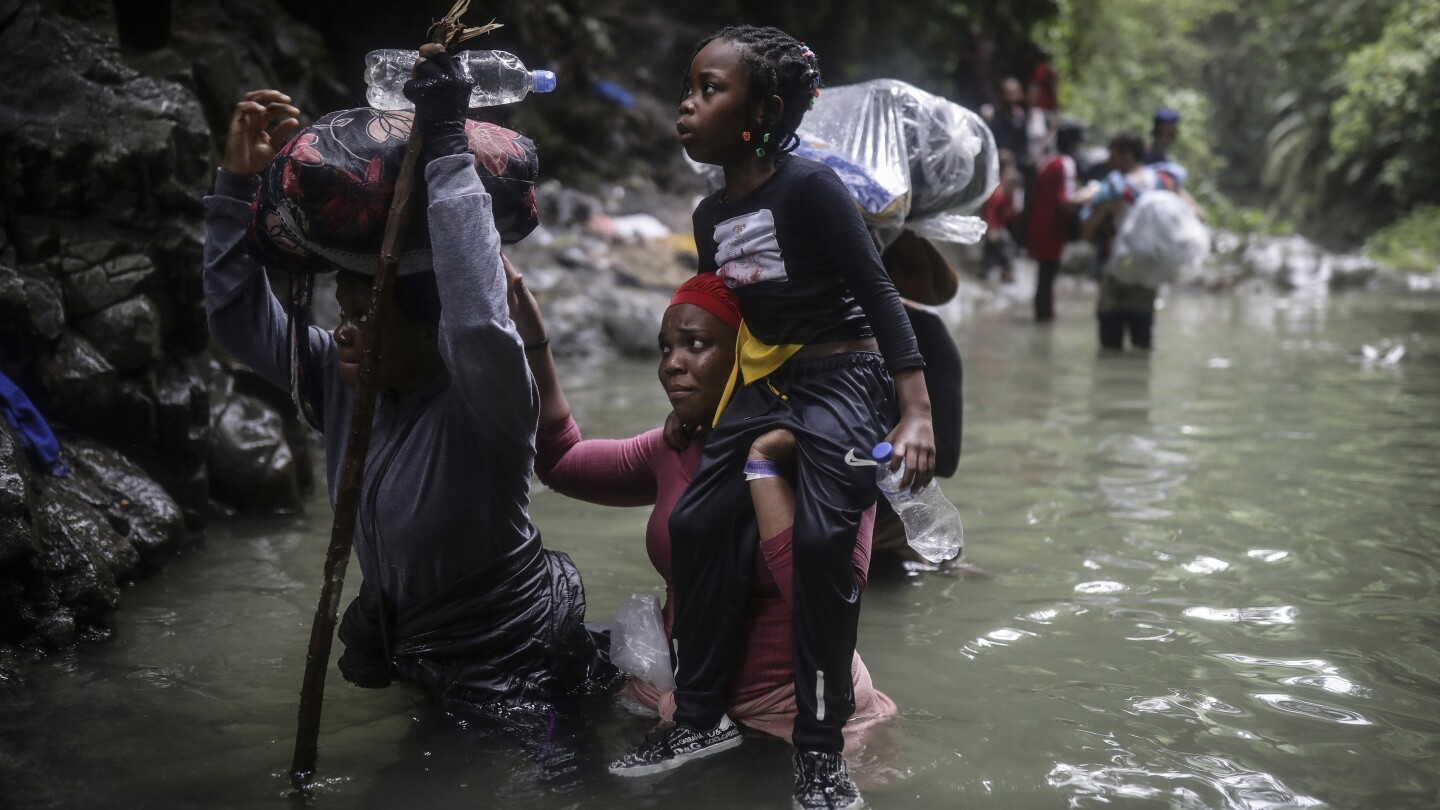- cross-posted to:
- news@lemmy.world
- cross-posted to:
- news@lemmy.world
Once nearly impenetrable for migrants heading north from Latin America, the jungle between Colombia and Panama this year became a speedy but still treacherous highway for hundreds of thousands of people from around the world.
Driven by economic crises, government repression and violence, migrants from China to Haiti decided to risk three days of deep mud, rushing rivers and bandits. Enterprising locals offered guides and porters, set up campsites and sold supplies to migrants, using color-coded wristbands to track who had paid for what.
Enabled by social media and Colombian organized crime, more than 506,000 migrants — nearly two-thirds Venezuelans — had crossed the Darien jungle by mid-December, double the 248,000 who set a record the previous year. Before last year, the record was barely 30,000 in 2016.
Dana Graber Ladek, the Mexico chief for the United Nation’s International Organization for Migration, said migration flows through the region this year were “historic numbers that we have never seen.”
The “Darian gap” not a gap anymore?
It’s a gap because there’s no infrastructure crossing it. Not because people can’t walk through it. To prevent that, it would probably need to be a waterway, which would force people to use boats or swim. It would still be passable though.
There frankly aren’t many places humans can’t traverse with our own bodies. We’re an extremely versatile, mobile species, even to the point of being capably semi-aquatic sometimes.
We’re an extremely versatile, mobile species, even to the point of being capably semi-aquatic sometimes.
And here am I, hardly capable of leaving my chair.
Yeah. Equality of opportunity is an aspiration to be fought for. Not yet a pre-existing reality, though.
Equality of opportunity is already real in this case. Opportunity of outcome is not and should not be.
Not necessarily. Equality of opportunity already being achieved is a common right wing talking point. You cannot look at the handicapped and actually say they all get the exact same chances as we do though, that’s frankly pants-on-head silly.
There’s a whole lot they can’t do.
This guy could geht out of his chair though
Did you really fucking say that to a wheelchair user?!
It’s a metaphorical highway, there still isn’t a road or anything.
Of course, it’s not an actual highway, but the myth was there’s no (safe) way for humans to cross the gap (over land). And now people just do it.
What makes you think its safe? People die trying to cross it all the time.
This is the best summary I could come up with:
MEXICO CITY (AP) — Once nearly impenetrable for migrants heading north from Latin America, the jungle between Colombia and Panama this year became a speedy but still treacherous highway for hundreds of thousands of people from around the world.
Enabled by social media and Colombian organized crime, more than 506,000 migrants — nearly two-thirds Venezuelans — had crossed the Darien jungle by mid-December, double the 248,000 who set a record the previous year.
In Washington, the debate has shifted from efforts early in the year to open new legal pathways largely toward measures to keep migrants out as Republicans try to take advantage of the Biden administration’s push for more aid to Ukraine to tighten the U.S. southern border.
Citizens of African nations made circuitous series of connecting flights through Africa, Europe and Latin America to arrive in Managua to start travelling overland toward the United States, avoiding the Darien.
Mexico’s immigration system was thrown into chaos on March 27, when migrants held in a detention center in the border city Juarez, across from El Paso, Texas, set mattresses on fire inside their cell in apparent protest.
Unable to detain many migrants, Mexico instead circulated them around the country, using brief, repeat detentions, each an opportunity for extortion, said Gretchen Kuhner, director of IMUMI, a nongovernmental legal services organization.
The original article contains 1,300 words, the summary contains 219 words. Saved 83%. I’m a bot and I’m open source!
This is what you get for meddling in all those countries for decades. If you help make another place less attractive to live, don’t be surprised when your attractive place to live actually attracts people 😅



